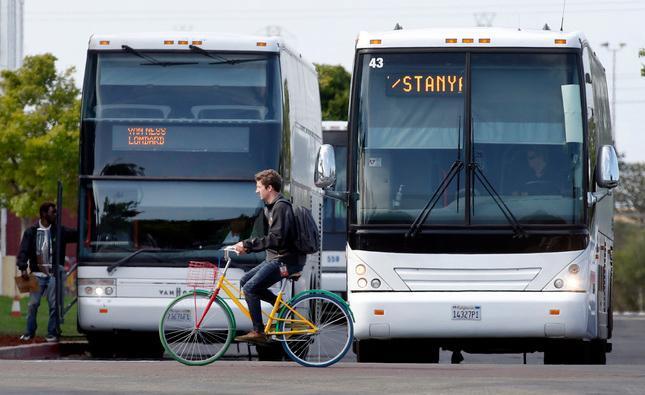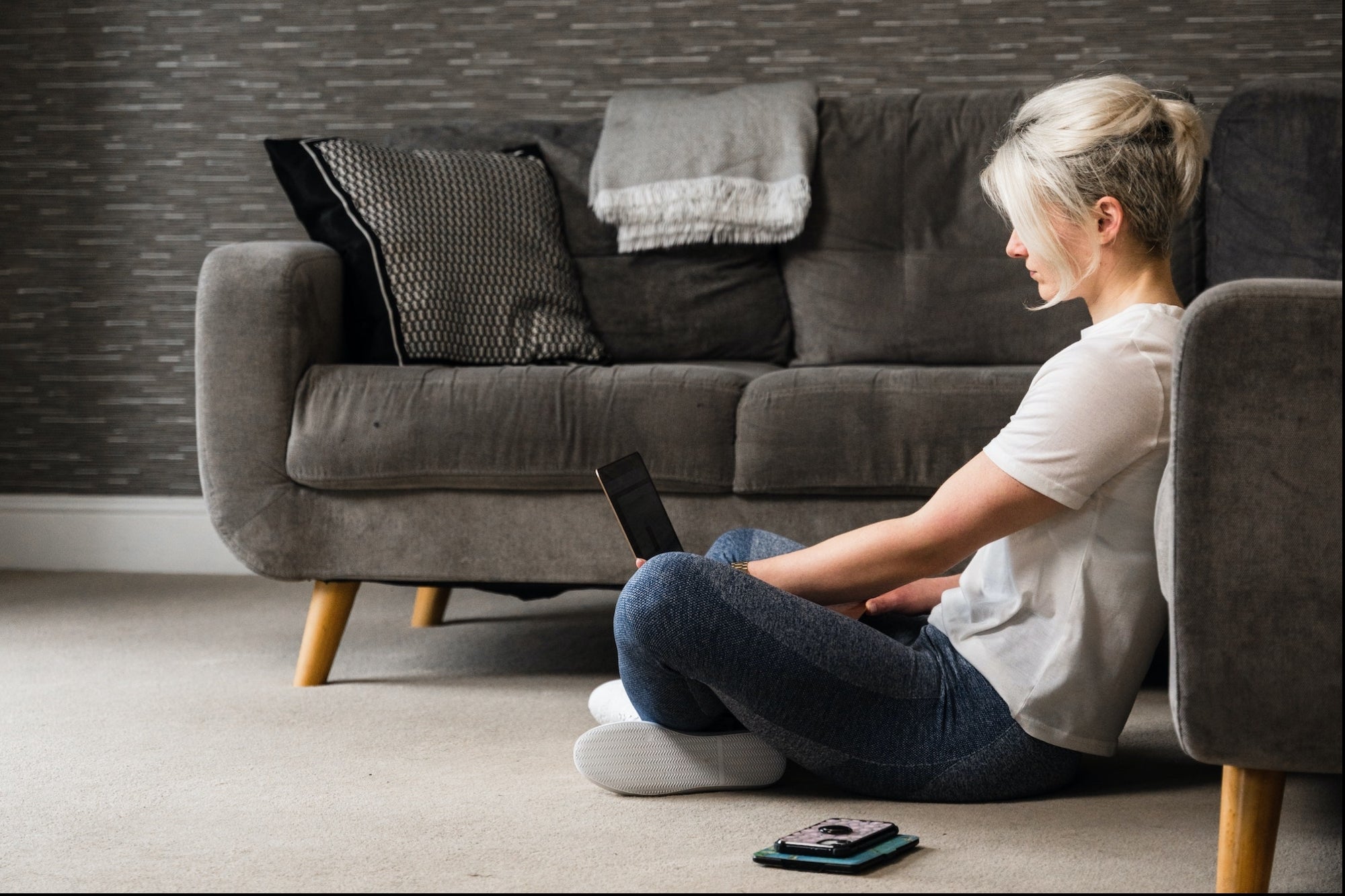Google will restart its shuttle-bus service for employees along with its famed free-food cafeterias as it begins reopening Bay Area offices in two weeks.
The Mountain View-based digital advertising and internet-search giant said Tuesday it would start bringing workers back to its offices and campuses in the region July 12 on a voluntary basis, ramping up to a broad reopening in September.
Google’s network of shuttle buses — which have drawn fire for their role in gentrification and praise for their role in reducing traffic and pollution — will restart the same day, on a slightly reduced schedule, the company said. The cafeterias and snack stations that the firm pioneered as a free employee amenity will also reopen July 12, but in some locations services and options will be limited until September, Google said.
Company employees permanently assigned to California offices will be able to work in offices again for the first time since the coronavirus pandemic shut down workplaces and Google shifted to remote operations.
While the company is not requiring returning workers to be vaccinated against COVID, workers who aren’t, or who decline to say they are, will have to wear masks and undergo weekly coronavirus testing, while employees providing proof of vaccination can go mask free if they wish, Google said. The firm will provide free testing for unvaccinated people and those who don’t disclose their vaccination status, and Google can help employees find vaccination sites, it said.
The company will follow state regulations that will allow it to eliminate social distancing, it said, adding that it had taken protective measures including improving air flow in buildings.
Google’s return to offices in California will start in the Bay Area and be followed by a two-stage reopening of facilities in southern California starting July 13 and July 27, the company said.
The firm said last month it plans to move away from largely remote operations and return to campus-focused employment. Workers can choose to work from home until September. After that, those whose daily presence is not required at company facilities will be put on a “hybrid” schedule that will see them in offices about three days a week, CEO Sundar Pichai said last month.
Employees can apply to remain fully remote, or move to other offices, but that could mean reduced compensation, according to Pichai, who said in a blog post that the majority of Googlers “still want to be on campus some of the time.” Office time will be focused on collaboration, with workers’ product areas and job functions guiding when they come to the office to work with their teams, he said.
Several Silicon Valley technology giants have started reopening offices or announced they’ll start soon. San Jose software company Adobe said last week that it plans to re-open its San Jose offices July 14 at 50% capacity to kick off rollout of a hybrid model allowing employees to spend only half their working time in the office.
Business-software firm Salesforce, which last month began bringing employees vaccinated against COVID into its San Francisco headquarters on a voluntary basis has said it’s adopting a model that will see about two-thirds of workers on a “flex” schedule that brings them to offices one to three days a week.
Menlo Park social-media firm Facebook last month began re-opening its Bay Area offices to employees on a voluntary basis with limited capacities. Facebook has given workers until July 2 to continue working remotely if they wish.










